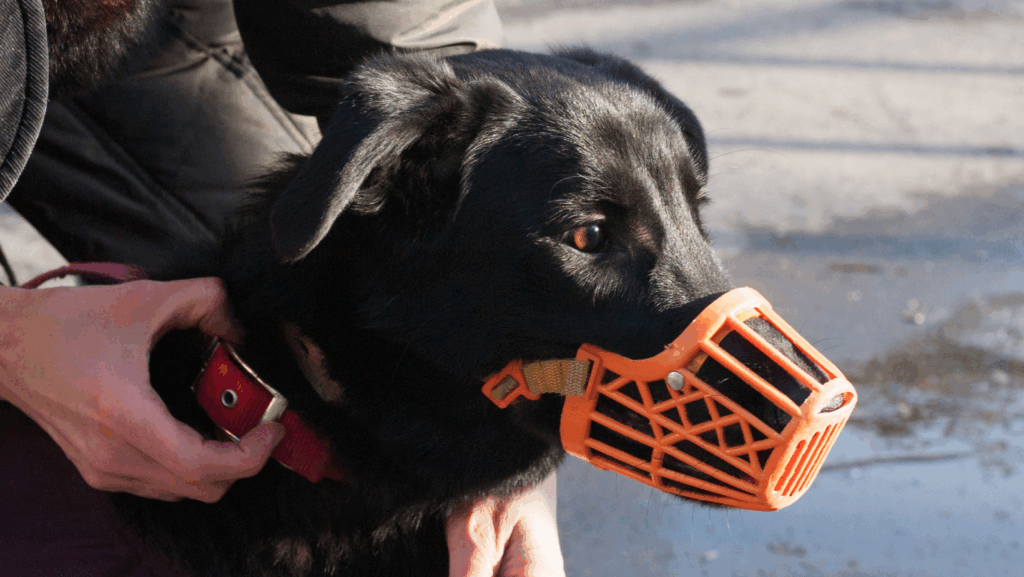It was 3:27 a.m. I know this because I checked my phone with the kind of bitter, sleep-deprived desperation that only a dog parent understands. My eyes flickered to the crate, where my sweet, angelic fur baby, Max, was serenading me with an ear-splitting, repetitive bark. This wasn’t just a bark, mind you—it was an alarm clock made of soundwaves, designed specifically to test the limits of my sanity. Max had been crate trained. I did all the “right” things. Treats. Positive reinforcement. The whole nine yards. But here I was, lying in bed, wondering if this dog was actually plotting to see how far he could push me.
Maybe he wasn’t barking for attention. Maybe he was conducting a social experiment on me—how long before I cracked? Or maybe, just maybe, he was bored, confused, or even anxious. Either way, Max had me wrapped around his paw, and I knew it.

The Early Days: When Barking Was Cute… Sort Of
I can vividly recall the first time Max barked in the crate. It was when he was still a puppy, and like any doting dog parent, I thought, “Oh, it’s just puppy stuff. He’ll grow out of it.” I even took a video of his first night in the crate, proudly showing off to friends and family, who, looking back now, were probably rolling their eyes at my naïveté. Those cute little yips turned into full-blown demands for attention over the coming weeks. It was as if Max had mastered the art of crate manipulation.
The truth? I had become the perfect subject for his psychological experiment.

Midnight Madness: Why Is My Dog Barking in the Crate?
Fast forward a few weeks (and many sleepless nights), and I found myself Googling “Why is my dog barking in the crate at night?” The answers were all over the place. Anxiety, separation distress, boredom, needing to potty, or just straight-up wanting attention. Great. So Max could either be suffering from deep emotional trauma or he might just be bored because I didn’t leave him enough enrichment.
Here’s the kicker though: Max was calm during the day. The crate was his daytime hangout, complete with comfy bedding, chew toys, and a Kong stuffed with peanut butter. He loved it! But the minute nighttime hit? He’d flip a switch, and suddenly, the crate was a prison cell. This is when I started to question whether he was genuinely distressed or if he was simply seeing how long it would take for me to lose my mind.

The Test of Wills: Man vs. Dog
The reality is, dogs are much smarter than we give them credit for. And as much as I hate to admit it, Max knew exactly what he was doing. He barked, I got up. Cause and effect. Simple, right? And like a fool, I’d try everything: letting him out, giving him water, even sitting next to the crate trying to calm him down. Each time I did this, he’d stop barking—temporarily. Then, as soon as I returned to bed, the barking would start again.
Looking back, I realize that Max wasn’t just barking out of boredom or need. He was testing boundaries, the way dogs do, and I had fallen for it, hook, line, and sinker. The barking was his way of saying, “Hey, you’re still going to come get me, right?” It was a game of wills, and I was losing.

The Epiphany: Fixing the Problem (And My Sanity)
After weeks of this nightmarish routine, I hit my breaking point. The constant sleep deprivation made me question all my dog training decisions. I reached out to a balanced dog trainer—someone who incorporates positive reinforcement with the right corrections. This is where the real education started.
Here’s what I learned: barking in the crate isn’t something you have to accept as a part of dog ownership. It’s a behavior that can be addressed, and Max wasn’t just a problem dog—he was confused, and I was making it worse by constantly reinforcing his demands.
Here’s a balanced approach to fixing barking in the crate that worked for me, and hopefully, it can save you from the midnight madness too:

1. Don’t Reinforce the Barking
This was my first and biggest mistake. Every time Max barked and I got up to check on him, I reinforced that barking meant attention. Even though I thought I was helping him feel secure, I was just teaching him that his barking got results. The fix? I had to stop responding to his barking altogether. It wasn’t easy, but within a few nights, Max realized that barking didn’t equal freedom.
Pro Tip: Use earplugs if you need them. Your dog won’t die from a night of barking, but you might lose your sanity if you keep giving in. Trust me, I’ve been there.

2. Use Proper Timing for Corrections
I was hesitant at first to use corrections. The internet had scared me into thinking any form of discipline would traumatize Max for life. But when you use corrections properly, they serve as boundaries, not punishment. If Max barked after a long period of silence, I would wait for a lull and then calmly say “Quiet.” If the barking continued, I would give a mild correction—like a spray bottle or a firm verbal “Ah-ah.” The key is to time it correctly so he associates the correction with the unwanted behavior.
Important: Never correct when your dog is already stressed or anxious. You want the correction to address barking, not to add to their emotional distress.

3. Give Him Something to Do
Dogs often bark in the crate because they’re bored. Even though Max had plenty of toys, I wasn’t rotating them out, so he was getting bored of the same old stuff. This was an easy fix: I started giving him puzzle toys, frozen Kongs, and chews that he only got when he was in the crate at night. This way, the crate became a place of engagement, not boredom.
Also, I made sure he had plenty of exercise before bedtime, so he was physically tired. A tired dog is a quiet dog. Well, most of the time.

4. Use a Remote Collar for Persistent Barking
I know, I know. This is controversial. But hear me out—when used properly, a remote collar can be a lifesaver, especially for crate barking. I invested in a high-quality remote collar, and with the guidance of my balanced trainer, I used it to give Max a clear signal when the barking was absolutely unacceptable. After a couple of low-level corrections, Max quickly understood that barking in the crate at night was a no-go. He wasn’t traumatized or stressed out; he simply learned the rules.
Reminder: Always consult a professional trainer when using a remote collar. It’s crucial that you understand how to use it correctly so it doesn’t cause confusion or harm.

5. Create a Positive Crate Routine
I realized that part of Max’s problem was the unpredictability of his crate routine. Sometimes I’d let him out after 10 minutes of barking, sometimes after 30. He had no idea what to expect. Once I introduced a strict nighttime routine—crate time at the same hour, followed by a calming ritual—he began to settle much faster. A little lavender-scented crate blanket and some white noise also helped.

6. Address Underlying Anxiety
I’m not going to sugarcoat it—sometimes barking is a sign of anxiety. Max wasn’t super anxious, but he had a little bit of separation unease at night. I started working with him on that during the day. I’d leave him in the crate for short periods while I was home and rewarded calm behavior with treats. Gradually, we worked up to longer times alone in the crate, and the barking at night became less frequent.

The Turning Point
It wasn’t just a victory for my sanity; it was a breakthrough in my relationship with Max. I realized that barking in the crate wasn’t Max trying to test my willpower—it was his way of communicating confusion, frustration, and sometimes just boredom. By setting clear boundaries and sticking to them, I helped Max understand what was expected of him, and we both benefitted from it.
After implementing these steps, something amazing happened. Max stopped barking in the crate. It didn’t happen overnight, but within a week, he began to understand that his crate was a place to relax, not a place to demand attention. And I, for the first time in months, began to sleep through the night again.

Final Thoughts
If you’re sitting up at 2 a.m. with a barking dog, staring at the crate and wondering if you’ve lost your mind, I get it. I’ve been there. The truth is, barking in the crate is a common issue, but it’s not impossible to fix. Whether it’s reinforcing quiet behavior, using mild corrections, or just understanding your dog’s needs better, there’s a solution.
Max and I survived the barking battle, and so can you. Just remember, you’re not crazy—your dog is just very, very smart. And once you understand that, the crate becomes less of a battlefield and more of a place where you both can find some peace.





